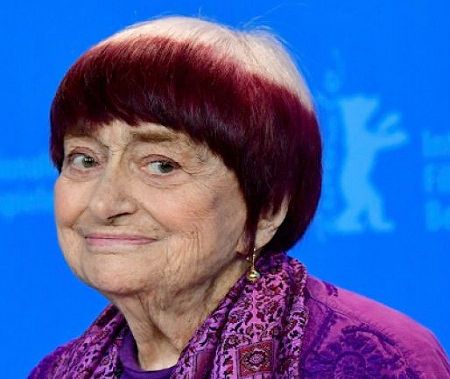AGNES VARDA AN ICON
THE NEW WAVE AND FEMINISM |
|
| She had the haircut cut in the monk's bowl that never left her. She had the sparkling eye of the early photographer - she studied photography at the Ecole des Beaux-Arts, and the history of art at the Louvre School - later as a filmmaker. Agnès Varda passed away on Friday, March 29, 2019, at the age of 90. Agnès Varda was one of the pioneers of the New Wave, and one of the few women filmmakers of the New Wave, with Nelly Kaplan, who will later sign The Pirate's Bride, in 1969.
She films the marital problems of a couple of Parisians (Philippe Noiret and Silvia Monfort). This first attempt, which mixes with chronic means of realism and psychological study, preludes, in 1954, to the audacities of the New Wave. "In 1954, I was a photographer at the TNP and I knew little about cinema. It seemed to me then that many "literary revolutions" did not have their equivalent on the screen. So I was inspired, for my research, Faulkner, Brecht, trying to break the construction of the story, to find a tone both objective and subjective, to leave the viewer his freedom of judgment and participation. ", She explained in an interview to Le Monde, in 1962. First female filmmaker of this new cinema of the sixties, first feminist icon too. She presents in Cannes in 1961 her second feature film, Cléo from 5 to 7. The film tells eighty-six minutes of the life of a young woman, a superficial singer who awaits the results of a medical analysis and who is afraid. But the film puts especially on stage a feminine liberation by the representation of a radical gesture: neither wig nor undressed in feathers. Because Agnes Varda is engaged. A committed feminist, she signed in 1971 the Manifesto of 343 sluts, a call for the legalization of abortion. She directed in a feature film a demonstration in front of the court of Bobigny, where is held the trial of five women who practiced the interruption of pregnancy In 1976, his musical, One sings, the other not , told the emancipation of women at the turn of the 1960-1970s. The story of a friendship between two opposing characters, which, in the background, tells the story of women's rights. "The double day, poor mom, it's exhausting and it's poorly paid." In Sans toit ni loi Agnès Varda traces the destiny of a girl on the ban of society, Mona, masterfully interpreted by young Sandrine Bonnaire. A heroine in love with freedom. The film wins the Golden Lion in Venice. Until the end, his life was cinema, and vice versa, with his company of production and distribution installed at home (Ciné-Tamaris), street Daguerre, in the 14th district of Paris. With the filmmaker Jacques Demy, who died in 1990, she shared life, love and cinema. But always in love with independence. "I lived for years with Jacques Demy. I was not stupefied by that. I kept my name, I continued to do my job and share what we can share with a man, that is life, family life, the table, the bed. But not personal identity, nor work, "she told in an interview with Nova. "Feminists are right to yell! ", She claimed again in 2017 in an interview in Le Monde. |
|
| Joanne Courbet for DayNewsWorld | |
 |
|




